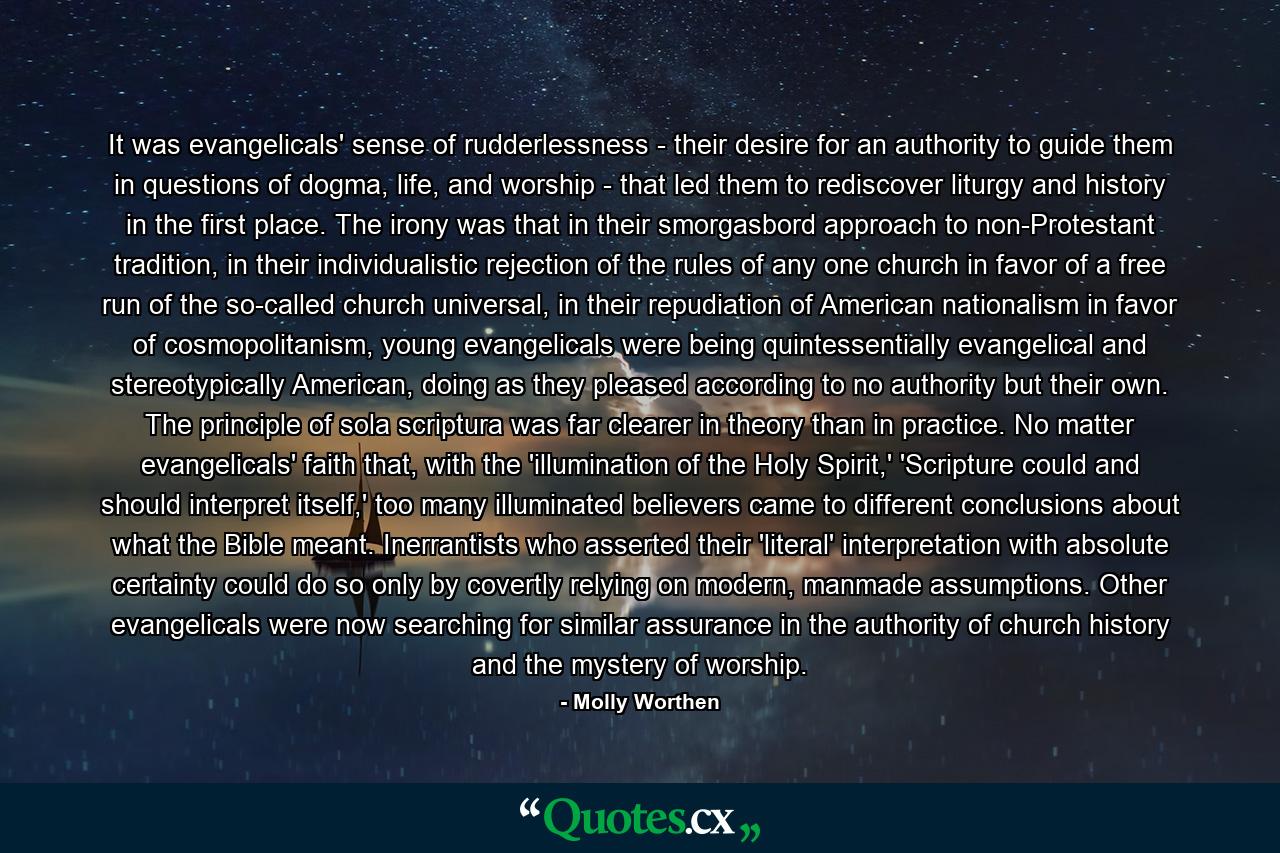It was evangelicals’ sense of rudderlessness – their desire for an authority to guide them in questions of dogma, life, and worship – that led them to rediscover liturgy and history in the first place. The irony was that in their smorgasbord approach to non-Protestant tradition, in their individualistic rejection of the rules of any one church in favor of a free run of the so-called church universal, in their repudiation of American nationalism in favor of cosmopolitanism, young evangelicals were being quintessentially evangelical and stereotypically American, doing as they pleased according to no authority but their own. The principle of sola scriptura was far clearer in theory than in practice. No matter evangelicals’ faith that, with the ‘illumination of the Holy Spirit,’ ‘Scripture could and should interpret itself,’ too many illuminated believers came to different conclusions about what the Bible meant. Inerrantists who asserted their ‘literal’ interpretation with absolute certainty could do so only by covertly relying on modern, manmade assumptions. Other evangelicals were now searching for similar assurance in the authority of church history and the mystery of worship.
